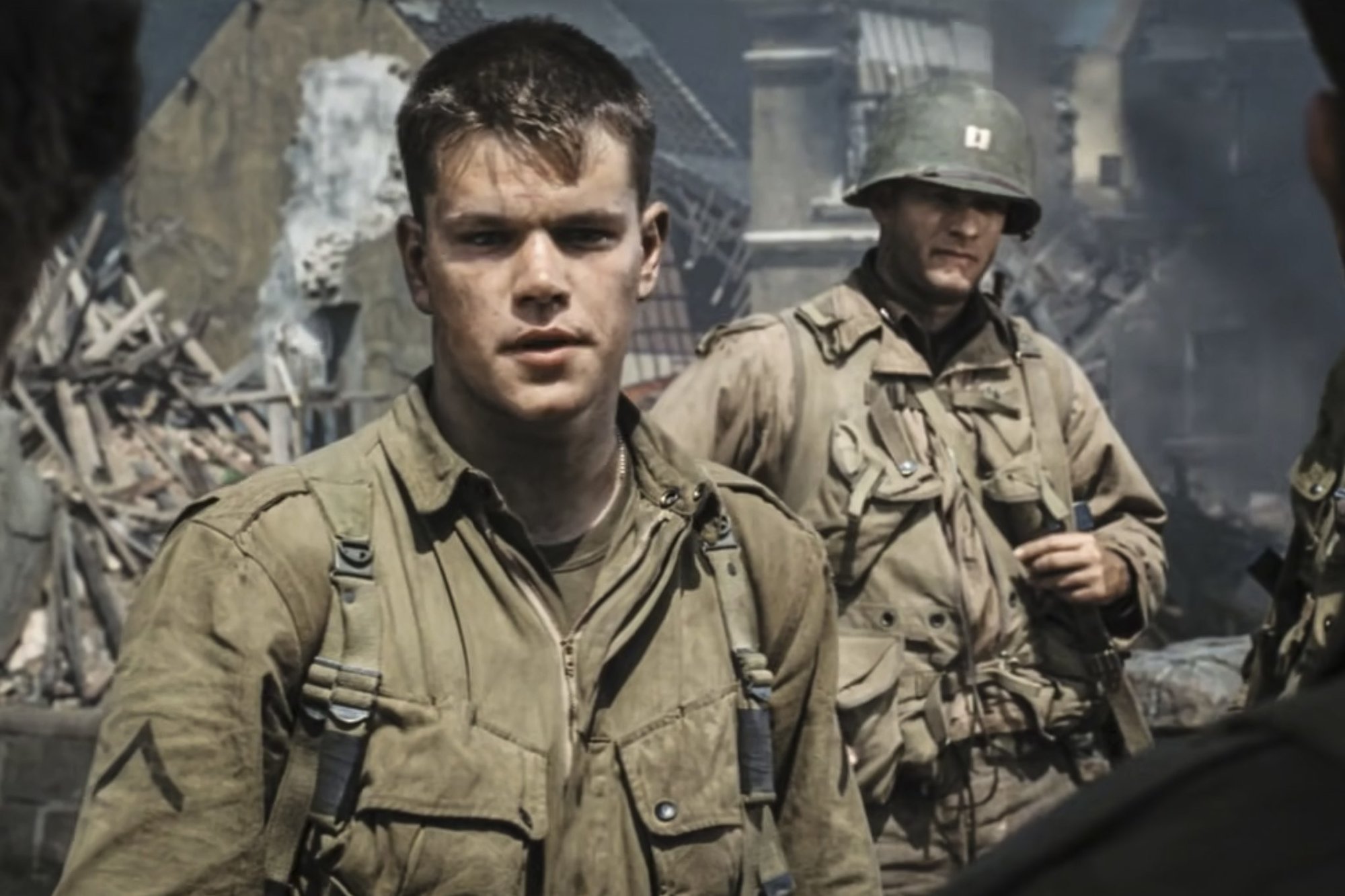
The mission to save Pvt. James Francis Ryan, played by Matt Damon, in Saving Private Ryan, was inspired by a true story. Screenshot from YouTube.
The 1998 movie “Saving Private Ryan” is one of the all-time great war movies. While much of the movie is a fictional account, the premise behind Capt. Miller’s mission is based on a true story. That is the story of the Niland brothers — Edward, Preston, Robert, and Frederick — from Tonawanda, New York.
The two middle brothers inspiring the “Private Ryan” film, Preston and Robert, had enlisted prior to the beginning of the War. After America entered the war the oldest, Edward, and youngest, Frederick, known as Fritz to his friends, joined up in November 1942.
Because of the tragedy of the Sullivan brothers aboard the USS Juneau earlier that year, the brothers were split up and sent to different units around the Army. Edward became an enlisted pilot, with the rank of Technical Sergeant, of a B-25 Mitchell bomber flying in the Burma-India-China theatre. Preston was commissioned into the infantry and assigned to Company C, 22nd Infantry Regiment, 4th Infantry Division. Robert and Fritz both became paratroopers. Robert served with Company D, 505thParachute Infantry Regiment, 82nd Airborne Division. Fritz joined Company H, 501stParachute Infantry Regiment of the 101stAirborne Division.
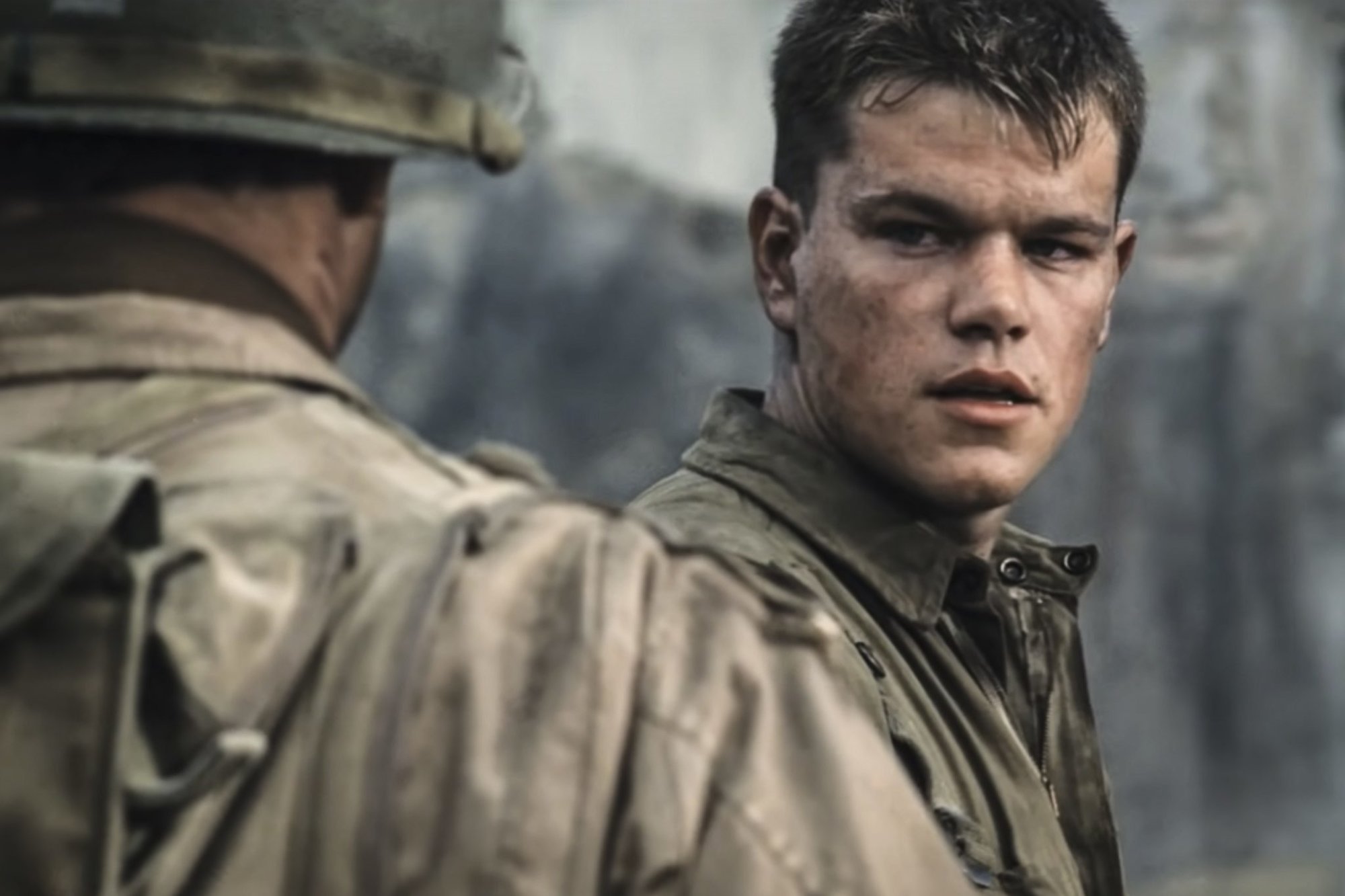
As fate would have it, three of the brothers found themselves preparing for the invasion of mainland Europe. However, before the brothers could start their “Great Crusade” to liberate Europe, Edward was shot down somewhere over Burma. He was listed as Missing in Action, but this usually carried a presumption of death at the time, especially if he had fallen into the hands of the Japanese.
Then, in the early morning hours of June 6, 1944, Robert and Fritz joined over 23,000 Allied paratroopers in cracking Fortress Europe.
Although Fritz’s unit, 3rd Battalion, 501st PIR, was supposed to be the division reserve, the misdrops meant they were thrust into action in ad hoc groups. These forces were able to secure vital causeways, bridges, and locks allowing the 4th Infantry Division, and Niland brother Preston, to exit Utah beach later that day.
This wasn’t quite what happened in Private Ryan, but the movie still draws from these events.
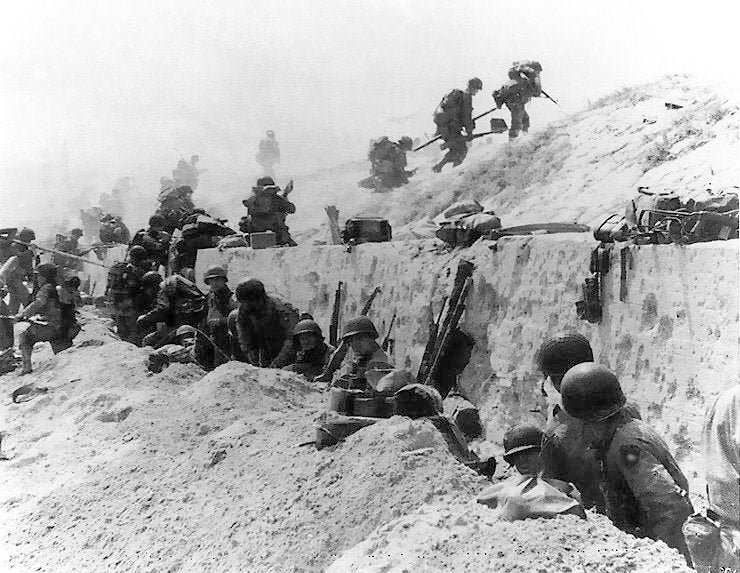
Elsewhere, Robert Niland had landed outside of Ste. Mere-Eglise with the rest of the 505th as part of Mission Boston. After the 3rd Battalion was able to capture the town early in the morning, the 2nd Battalion linked up with it to establish a defensive perimeter.
When a strong German counter-attack came from the south, Robert Niland and the rest of D Company’s 3rd platoon were left to guard the northern approaches to the town in a small village called Neuville.
When two companies of Germans came at their position, they fought tenaciously to hold them off to buy time for their comrades to the south. When the position became untenable, Robert Niland, along with two other paratroopers, volunteered to stay behind and cover the platoon’s retreat toward Ste. Mere-Eglise.
While manning a machine gun in the face of the German onslaught, Robert Niland was killed in action.
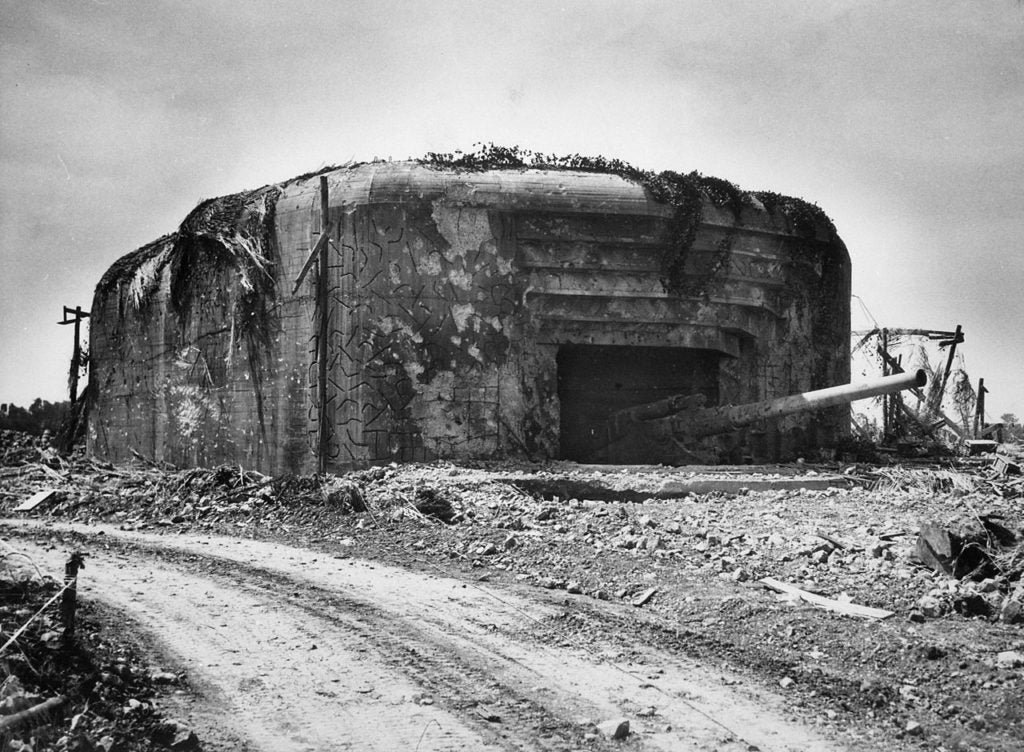
That very same morning, Lt. Preston Niland led his men onto the shores of Utah beach as part of the seaborne invasion of Normandy. Though casualties were relatively light for the men of the 4th Infantry Division on Utah beach, the battles beyond would be much tougher.
Despite having made if off the beaches, the men of the 4th Infantry Division still had numerous gun batteries of Hitler’s Atlantic Wall to clear. The task of capturing the Crisbecq battery, which had already sunk the destroyer USS Corry, fell to Lt. Niland and his men.
On June 7, Niland led his men against the German position. During the heavy fighting Niland fell mortally wounded. The rest of his unit was repulsed. The battery would not fall until several days later to units of the 9thInfantry Division.
The Niland brothers’ parents received all three notifications in a very short amount of time. Their only condolence was a letter from Fritz informing them that “Dad’s Spanish-American War stories are going to have to take a backseat when I get home.”
Fritz was unaware of the fate of his brothers. If only the brothers could have known that their story would turn into Saving Private Ryan, one of the most classic war films in history.
When the War Department received word of the tragedy orders were dispatched to return Fritz Niland to the United States. That task fell to the regimental Chaplin, Father Francis Sampson. Sampson located Fritz, who had been searching for his brother in the 82nd and began to paperwork to send him home.
Returning to the United States in 1944, Fritz served for the remainder of the war as an MP in New York.
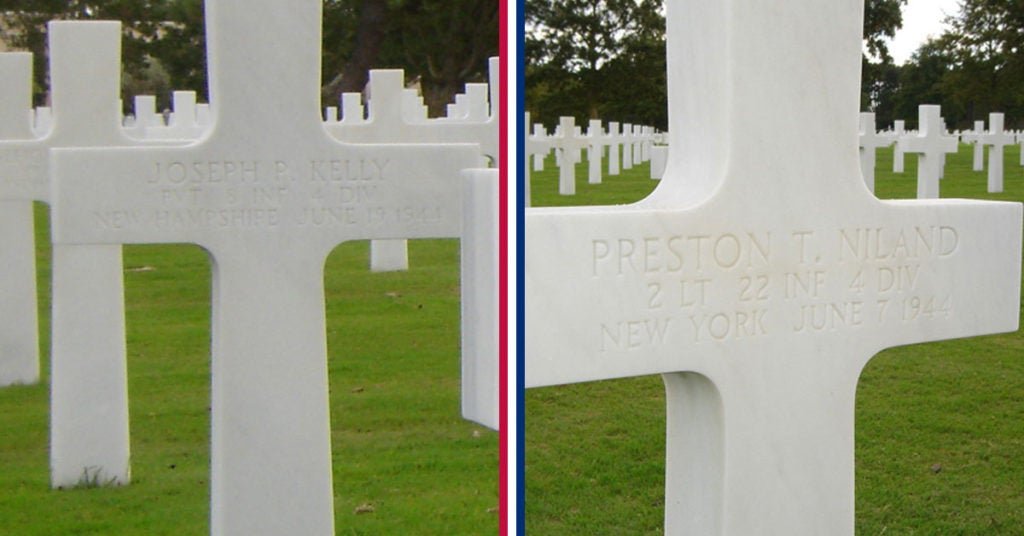
Then, in May 1945, the Nilands received some rather unexpected news. Edward was found alive in a Burmese POW camp when it was liberated by British forces.
He had survived bailing out of his plane, several days in the jungle, and nearly a year as a prisoner of the Japanese. During his captivity he had lost significant weight and returned to New York at a meager 80 pounds.
The other two Niland brothers, Preston and Robert, are buried side-by-side in the American cemetery at Colleville-sur-Mer.
This article was originally published on We Are The Mighty. Read more by We Are The Mighty here.
Read Next:

Eric Miller is a former Army Combat Medic from Parkersburg, West Virginia. He holds a bachelor’s degree in history and has worked with homeless populations and veteran services throughout the state. He is an avid outdoorsman and has recently become interested in woodworking.
BRCC and Bad Moon Print Press team up for an exclusive, limited-edition T-shirt design!
BRCC partners with Team Room Design for an exclusive T-shirt release!
Thirty Seconds Out has partnered with BRCC for an exclusive shirt design invoking the God of Winter.
Lucas O'Hara of Grizzly Forge has teamed up with BRCC for a badass, exclusive Shirt Club T-shirt design featuring his most popular knife and tiomahawk.
Coffee or Die sits down with one of the graphic designers behind Black Rifle Coffee's signature look and vibe.
Biden will award the Medal of Honor to a Vietnam War Army helicopter pilot who risked his life to save a reconnaissance team from almost certain death.
Ever wonder how much Jack Mandaville would f*ck sh*t up if he went back in time? The American Revolution didn't even see him coming.
A nearly 200-year-old West Point time capsule that at first appeared to yield little more than dust contains hidden treasure, the US Military Academy said.












